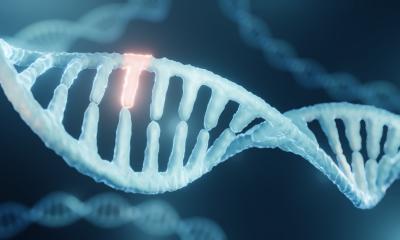Nutrigenomics
Healthy diet? That depends on your genes
A recently published Cornell University study describes how shifts in the diets of Europeans after the introduction of farming 10,000 years ago led to genetic adaptations that favored the dietary trends of the time.

Before the Neolithic revolution that began around 10,000 years ago, European populations were hunter-gatherers that ate animal-based diets and some seafood. But after the advent of farming in southern Europe around 8,000 years ago, European farmers switched to primarily plant-heavy diets. The study - the first to separate and compare adaptations that occurred before and after the Neolithic Revolution - reveals that these dietary practices are reflected in the genes of Europeans. "The study shows what a striking role diet has played in the evolution of human populations," said Alon Keinan, associate professor of computational and population genomics and the paper's senior author. Kaixiong Ye, a postdoctoral researcher in Keinan's lab, is the paper's lead author.
The study has implications for the growing field of nutritional genomics, called nutrigenomics. Based on one's ancestry, clinicians may one day tailor each person's diet to her or his genome to improve health and prevent disease. The study shows that vegetarian diets of European farmers led to an increased frequency of an allele that encodes cells to produce enzymes that helped farmers metabolize plants. Frequency increased as a result of natural selection, where vegetarian farmers with this allele had health advantages that allowed them to have more children, passing down this genetic variant to their offspring. The FADS1 gene found in these vegetarian farmers produces enzymes that play a vital role in the biosynthesis of omega-3 and omega-6 long-chain polyunsaturated fatty acids (LCPUFA). These LCPUFAs are crucial for proper human brain development, controlling inflammation and immune response. While omega-3 and omega-6 LCPUFA can be obtained directly from animal-based diets, they are absent from plant-based diets. Vegetarians require FADS1 enzymes to biosynthesize LCPUFA from short-chain fatty acids found in plants (roots, vegetables and seeds).
Analysis of ancient DNA revealed that prior to humans' farming, the animal-based diets of European hunter-gatherers predominantly favored the opposite version of the same gene, which limits the activity of FADS1 enzymes and is better suited for people with meat and seafood-based diets. Analysis of the frequencies of these alleles in Europeans showed that the prevalence of the allele for plant-based diets decreased in Europeans until the Neolithic revolution, after which it rose sharply. Concurrently, the opposite version of the same gene found in hunter-gatherers increased until the advent of farming, after which it declined sharply.
The researchers also found a gradient in the frequencies of these alleles from north to south since the Neolithic Era, including modern-day populations. All farmers relied heavily on plant-based diets, but that reliance was stronger in the south, as compared to northern Europeans - whose farmer ancestors drank more milk and included seafood in their diet. Plant-based alleles regulate cholesterol levels and have been associated with risk of many diseases, including inflammatory bowel disease, cardiovascular disease, arthritis and bipolar disorder. "I want to know how different individuals respond differently to the same diet," Ye said. Future studies will investigate additional links between genetic variation, diets and health, so that "in the future, we can provide dietary recommendations that are personalized to one's genetic background," he added.
Source: Cornell University
19.06.2017





